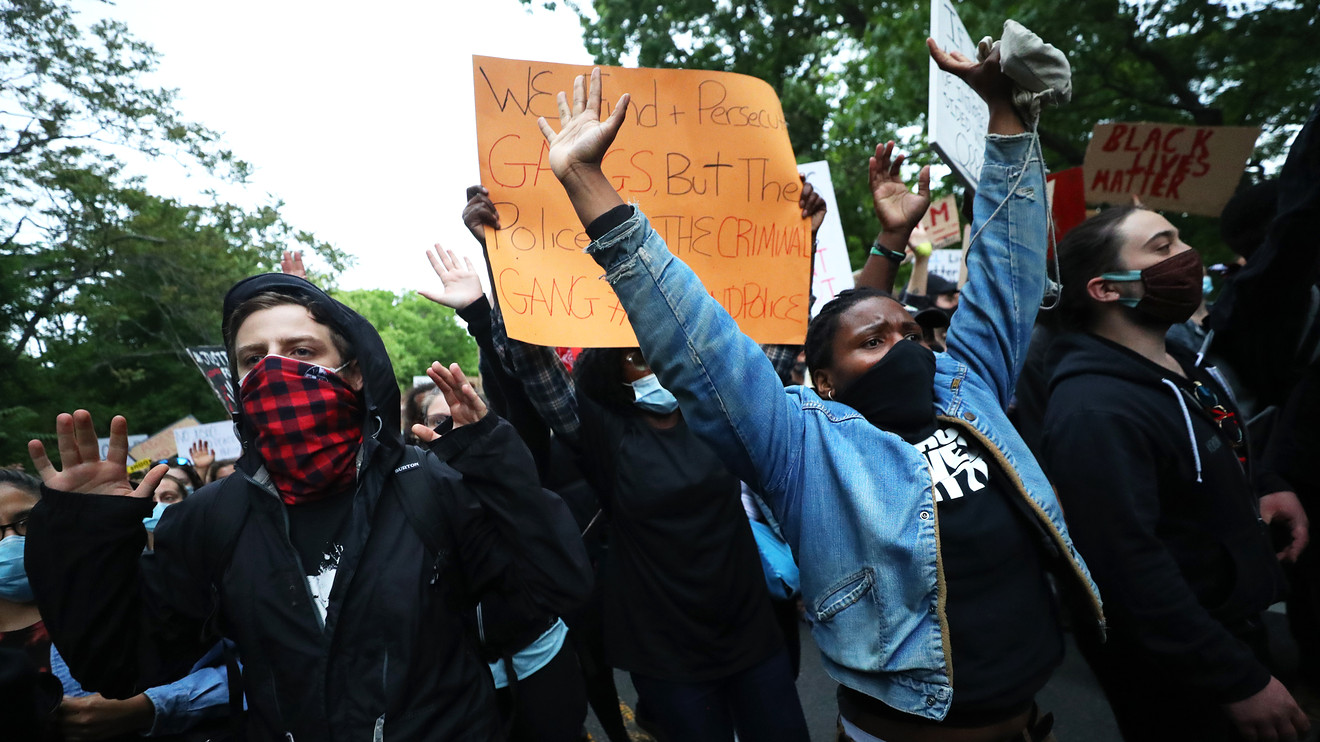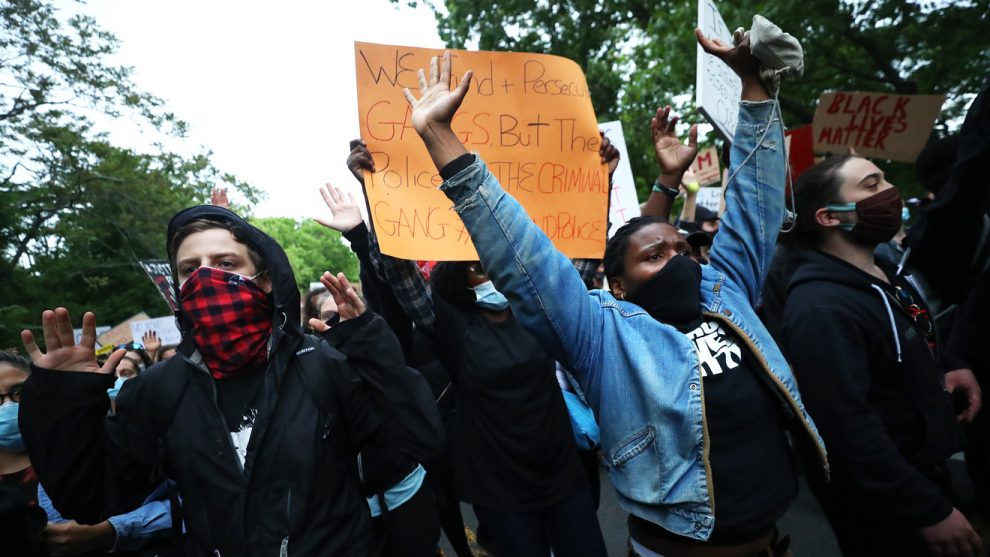
It’s unclear whether there will be a surge in COVID-19 infections among the thousands of people who have left their homes to participate in nationwide protests over police brutality.
Since mid-March, Americans have been urged to socially distance themselves from people outside their households to prevent the spread of the coronavirus, which has sickened more than 1.8 million people in the U.S. and killed at least 106,000 people.
“Protests are held over the weekend in various U.S. cities as people demonstrate to protest the death of George Floyd,” MKM Partners’ Charles Campbell told investors on Monday morning. “The large crowds of demonstrators also raise the risk of spreading coronavirus.”
It’s a sentiment echoed by U.S. Surgeon General Dr. Jerome Adams, who told Politico this week that “there is every reason to expect that we will see new clusters and potentially new outbreaks moving forward.”
However, other experts say the cause and effect are not that clear-cut.
Many of the people protesting Floyd’s death in Minneapolis at the hands of a white police officer are young, making them less likely to show the symptoms of the virus if they do contract it, get tested, or become hospitalized. That said, there may be a delayed uptick in cases if the virus is brought home to older family members, roommates, or neighbors, according to Raymond James health policy analyst Chris Meekins.
At the same time, the states that have started to reopen their economies, allowing crowds to take to beaches and bars, haven’t seen a significant increase in the number of new coronavirus infections. “I’m not convinced we’re going to have a notable uptick in cases for the virus” among protesters, Meekins said. “We have weeks of states reopening, and we haven’t seen the surge we expected.”
Then there is the bigger issue, of people who say that the risk of contracting the virus outweighs their anger over the disproportionate impact of the pandemic on communities of color and decades of frustration over police brutality and the killings of black people.
“As an epidemiologist of course I am worried about covid + crowds,” Caitlin Rivers, an epidemiologist and assistant professor at the Johns Hopkins Center for Health Security, tweeted, “but as a public health professional and community member I am also worried about disparities in justice and health.”
There are two reasons that the protests, now taking place in all 50 states, according to media reports, have created concern among medical experts. While many protesters are wearing masks, they may not be able to stay 6 feet away from one another. The other worry is that the virus is thought to be spread by droplets released by talking, yelling, and singing.
The role of talking in spreading the virus has increasingly become an area of focus for researchers. After a symptomatic individual attended a choir practice in Washington state in mid-March for two and a half hours, about 86% of the 60 people who attended practice on March 10 were later diagnosed with COVID-19, according to a May 15 report from the Centers for Disease Control and Prevention. The federal agency attributed the spread of the virus among this group of people to a lack of social distancing, sharing snacks, and stacking chairs that was likely “augmented by the act of singing.”
At the same time, the protests and much of the reopening activities are taking place outdoors, which is understood to lessen the spread of the virus from person to person. The protests began last week; Floyd was killed Monday, the same day as Memorial Day. The incubation period is still considered to be 14 days. “If no massive second wave starts by June 11th, we have a definitive break in the transmissibility of COVID-19,” FundStrat Global Advisors’ Thomas Lee wrote in a note to investors.
Health officials in Minnesota have recommended COVID-19 testing for all protestors and first responders to the protests. The New York City heath department said in an email it is “inviting anyone who has been out demonstrating over the past few days to come get tested.”
Beyond open-air protests, activist groups have already been urging jails, prisons, and detention centers in New York City to release certain people over COVID-19 concerns. Similar concerns, about contracting the coronavirus, are also being raised by protesters who have been arrested.
“There’s no question that there’s going to be surges related to the mass gatherings I saw on TV,” said Dr. Gregory Hall, director of the Center for African American Health, Research, Education & Policy, and board president of the Cuyahoga County Board of Health. “I think it’s not going to be as bad [since] we’re not as the peak of the spread.”
While the protesters have largely focused on police brutality, the broader movement also takes aim at the well-documented health disparities among African Americans, including the heavy impact of cases, hospitalizations, and deaths among black people during the COVID-19 pandemic.
In Ohio’s Cuyahoga County, black people made up 40% of cases, 45% of hospitalizations, and about 24% of deaths. Black people comprise 30.5% of the population there. In California, a study published in Health Affairs found that while African Americans make up 6.0% of the state’s population, they comprised 6.1% of COVID-19 cases and 10.3% of COVID-19 deaths.
Experts have said that one reason why African American people have gotten disproportionately sicker from the virus may have to do with poorly controlled health conditions, like diabetes, hypertension, and obesity, that can decrease an individual’s immune function. The pandemic, in many ways, has “shined a light on these health disparities and ways to improve them,” Hall said. “Protesting is not just about police brutality…It’s just about the injustices.”











Add Comment